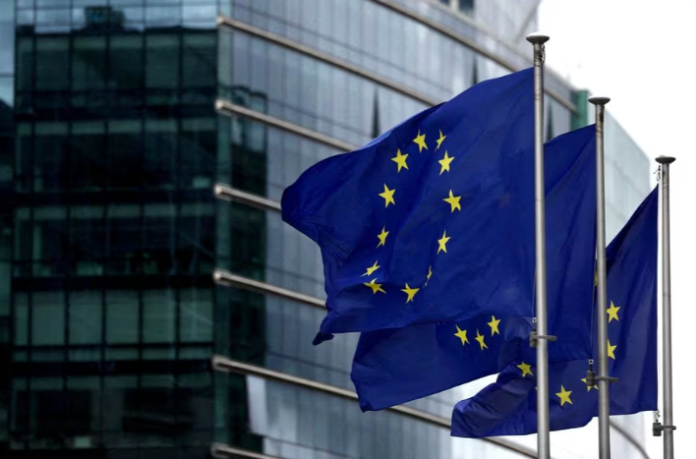European political parties certainly took the gloves off this week ahead of June’s EU elections, with everyone wanting to be a knight (or lady) in shining armour, Euractiv reports.
Brussels’ policies have changed significantly, amid fears that former US President Donald Trump may withdraw the American security guarantees that have protected Europe since the end of the Second World War. European defence has come a long way, emerging from obscurity and into the spotlight as one of the crucial themes of this year’s European election campaign.
European Commission President Ursula von der Leyen, officially endorsed as the main candidate of her centre-right European People’s Party (EPP), is basing her second-term strategy on more military might and less climate talk.
For Germany’s former defence minister, if elected, that means the need to appoint a new EU defence commissioner and increase pressure on the bloc’s member states to get their act together on defence spending.
The European Commission this week unveiled the long-awaited European Defence Industry Strategy, led by Industry Commissioner Thierry Breton (Renew Europe), which some have called another roadblock to making the EU a defence powerhouse.
The plans are likely to run into problems – a lack of money and fears among EU member states that the Commission will use the strategy as a tool to seize more national competences. As well as a bitter fight in inter-institutional negotiations between EU member states and the new European Parliament.
While Breton avoids overly politicised statements, European Commission insiders have no doubt that he is already eyeing a new portfolio. Although he may temporarily not be on good terms with von der Leyen for another reason.
In 2019, the EU executive created a special directorate for defence and space – DG DEFIS – headed by the French commissioner, a close associate of President Emmanuel Macron. Breton has been instrumental in addressing the increasingly pressing issues of munitions production and Europe’s pursuit of its space assets. Breton may see himself as a natural candidate, however, he is far from the only one.
He could be rivalled by European leaders such as Estonian Prime Minister Kaja Kallas (Renew Europe), who has repeatedly stated the need to pool EU resources to speed up munitions production and delivery to Ukraine and who is also being touted as a possible successor to EU chief diplomat Joseph Borrell (S&D).
Or for example, the Czechs, who led Prague’s latest ammunition initiative for Ukraine and have demonstrated a good knowledge of the defence industry and its capabilities. But while member states seem to warm to the idea of an EU defence commissioner, it still means different things to different people. The bloc’s defence agenda is split between Borrell and Breton, both have broad portfolios and the latter has treaties on his side.
On Friday (8 March), Borrell became the latest to speak out about the feasibility and limitations of such a future post, and he did so less than an hour after von der Leyen first floated the idea. Borrell wrote on X, adding that priority must be given now to better coordination of member states’ defence policies:
“Defence policy and the armed forces are and remain exclusive national competence. For that, we already have an EU Defense Ministers Council & a High Rep, to advance Common security [and] defence policies. A Defence Industry commissioner working within the existing framework may be useful. But the title of Defence Commissioner is misleading [and] not in line [with] EU treaties.”
Changes to the EU treaty are unlikely to be far behind, with the latest polls suggesting a sharp rise in right-wing populists is expected in this year’s EU elections.
Von der Leyen was appointed to the post in 2019 in a surprise move by European leaders and was only approved for the job by a narrow majority of nine votes in the European Parliament, having appealed to the Greens with environmental proposals to win their support to get across the line.
This time, it may well be about competitiveness and defence and who will be her knights and ladies in shining armour in her European Commission team for a second term.
